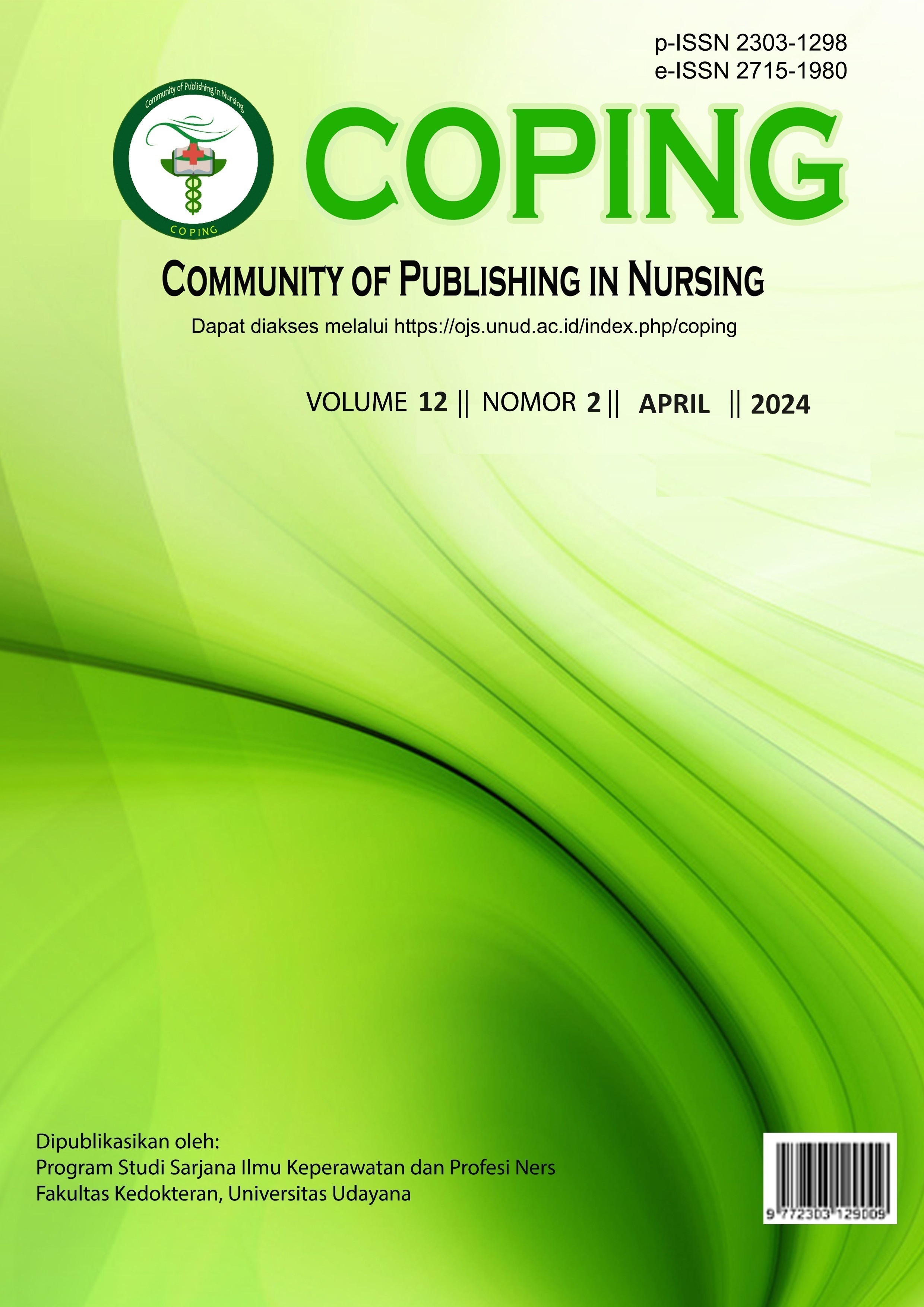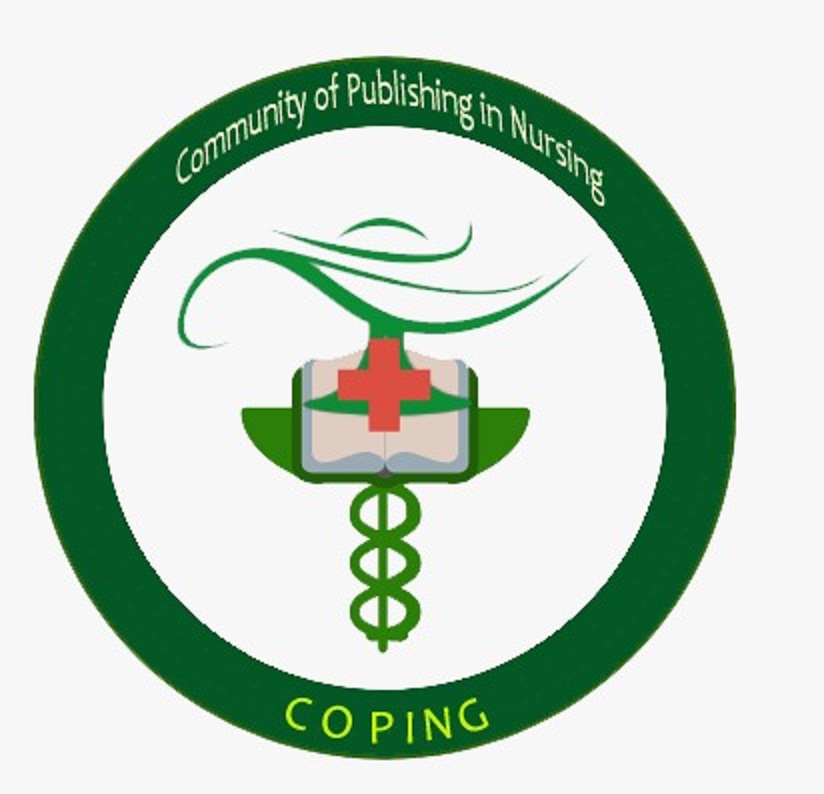ANALISIS PARENTAL SELF EFFICACY DALAM MENDAMPINGI ANAK MELAKSANAKAN PEMBELAJARAN DARING SEBAGAI DETERMINAN PERKEMBANGAN ANAK USIA SEKOLAH
Abstract
Perkembangan sosial, emosional, dan kognitif anak dipengaruhi oleh perilaku pengasuhan orangtua. Pandemi Covid-19 menyebabkan gangguan pada proses pembelajaran anak usia sekolah. Perubahan situasi proses pembelajaran menjadi tantangan bagi orangtua dalam melaksanakan pengasuhan pada anak. Salah satu faktor yang mempengaruhi pengasuhan orangtua dan anak adalan parental self efficacy (PSE). PSE mempengaruhi perilaku anak, kemampuan sosialisasi, self efficacy, tingkat ansietas, dan kemampuan akademik anak. Berbagai faktor mempengaruhi tingkat PSE. Penelitian ini bertujuan untuk menganalisis faktor yang mempengaruhi parental self efficacy dalam mendampingi anak melaksanakan pembelajaran online saat pandemi Covid-19. Desain penelitian menggunakan studi deskriptif kuantitatif. Responden dalam penelitian ini adalah orangtua siswa sekolah dasar yang mengikuti pembelajaran online di Denpasar sebanyak 94 orang. Teknik pengambilan data dilakukan dengan purposive sampling dengan menggunakan kuesioner Self Efficacy for Parenting Tasks Index. Hasil penelitian menunjukkan bahwa sebagain besar orangtua memiliki self efficacy yang baik. Faktor yang berhubungan signifikan dengan PSE adalah tingkat stres orangtua. Orangtua disarankan untuk mengelola stres dengan baik sehingga dapat melakukan pengasuhan pada anak secara optimal.
Downloads
References
Ahun, M. N., Consoli, A., Pingault, J. B., Falissard, B., Battaglia, M., Boivin, M., Tremblay, R. E., & Côté, S. M. (2017). Maternal depression symptoms and internalising problems in the offspring : the role of maternal and family factors. European Child & Adolescent Psychiatry, 0123456789. https://doi.org/10.1007/s00787-017-1096-6
Aji, W. D. F. (2020). Dampak Covid-19 Terhadap Implementasi Pembelajaran Daring di Sekolah Dasar. Jurnal Ilmu Pendidikan, 2(1), 55–61.
Albanese, A. M., Russo, G. R., & Geller, P. A. (2019). The role of parental self-efficacy in parent and child well-being: A systematic review of associated outcomes. Child: Care, Health and Development, 45(3), 333–363. https://doi.org/10.1111/cch.12661
Apriani, I., & Risnawaty, W. (2020). Parenting Self-Efficacy Among Full-Time Working Mothers in Jabodetabek. Education and Humanities Research, 478, 508–513.
Azmoude, E., Jafarnejade, F., & Mazlom, S. R. (2015). The Predictors for Maternal Self-efficacy in Early Parenthood. 5.
Benedetto, L., Ingrassia, M., Benedetto, L., & Ingrassia, M. (2018). Parental Self-efficacy in Promoting Children Care and Parental in Promoting Children Care and Parenting Quality Parenting Quality. Empirical Advances and Intervention Resources Expectation. https://doi.org/10.5772/intechopen.68933
Bond, S. M. (2013). The role of parental self-efficacy : The voices of mothers with low-income navigating supports , services , and obstacles. Thesis.
Bornstein, M. H. (2012). Parenting : Science and Practice Cultural Approaches to Parenting Cultural Approaches to Parenting. Psychology Press, December, 37–41. https://doi.org/10.1080/15295192.2012.683359
Brazendale, K., Beets, M. W., Weaver, R. G., Pate, R. R., Turner-mcgrievy, G. M., Kaczynski, A. T., Chandler, J. L., Bohnert, A., & Hippel, P. T. Von. (2017). Understanding differences between summer vs . school obesogenic behaviors of children : the structured days hypothesis. International Journal of Behavioural Nutrition and Physical Activity, 1–14. https://doi.org/10.1186/s12966-017-0555-2
Brown, S. M., Doom, J. R., Lechuga-pe, S., Watamura, S. E., & Koppels, T. (2020). Child Abuse & Neglect Stress and parenting during the global COVID-19 pandemic. Child Abuse & Neglect, August. https://doi.org/10.1016/j.chiabu.2020.104699
Coleman, P. K. (2003). Maternal self-efficacy beliefs, competence in parenting, and toddlers’ behavior and develommental status. Wiley InterScience, 24(2), 126–148. https://doi.org/10.1002/imhj.10048
Coleman, P. K., & Karraker, K. H. (2000). Parenting Self-Efficacy Among Mothers of School-Age Children: Conceptualization, Measurement, and Correlates. Family Relations, 13–24.
Coleman, P. K., & Karraker, K. H. (1998). Self-Efficacy and Parenting Quality : Findings and Future Applications. Developmental Riview, 85(18), 47–85.
Crnic, K., & Ross, E. (2017). Parenting Stress and Parental Ef fi cacy. Springer International Publishing, 263–284. https://doi.org/10.1007/978-3-319-55376-4
Dewi, M., & Indrasari, S. Y. (2016). The Influence of Parental Involvement on Parenting Self-Efficacy among Parents with Middle Childhood Children.
Elizabeth, K., Heather, B., Haverback, R., & Pae, H. K. (2017). Investigating Maternal Self-Efficacy and Home Learning Environment of Families Enrolled in Head Start. Early Childhood Education Journal, 0(0), 0. https://doi.org/10.1007/s10643-017-0853-y
Fang, Y., Boelens, M., Windhorst, D. A., Raat, H., & van Grieken, A. (2021). Factors associated with parenting self-efficacy: A systematic review. In Journal of Advanced Nursing (Vol. 77, Issue 6, pp. 2641–2661). Blackwell Publishing Ltd. https://doi.org/10.1111/jan.14767
Gavita, O. A. (2014). You are Such a Bad Child! Appraisals as Mechanisms of Parental Negative and Positive Affect. The Journal of General Psychology, 141(2), 113–129.
Giallo, R. (2013). Early Child Development and Care Mothers’ and fathers’ involvement in home activities with their children : psychosocial factors and the role of parental self-efficacy. Early Child Development and Care, 183 (December 2014), 37–41. https://doi.org/10.1080/03004430.2012.711587
Hapsari, S. M., Sugito, & Fauziah, P. Y. (2020). Parent’s Involvement in Early Childhood Education during the Covid-19. Jurnal Pendidikan Progresif, 10(2), 298–311. https://doi.org/10.23960/jpp.v10.i
Holland, J. Van, Marcel, D. G., Simone, H., & Freek, D. R. (2018). Socio-demographic Correlates of Fathers’ and Mothers’ Parenting Behaviors. Journal of Child and Family Studies, 2315–2327. https://doi.org/10.1007/s10826-018-1059-7
Indrasari, S. Y., & Affiani, L. (2018). Peran Persepsi Keterlibatan Orangtua Dan Strategi Pengasuhan Terhadap Parenting Self-Efficacy. 16(02), 74–85. https://doi.org/10.7454/jps.2018.8
Jones, T. L., & Prinz, R. J. (2005). Potential roles of parental self-efficacy in parent and child adjustment : A review. Clinical Psychology Review, 25, 341–363. https://doi.org/10.1016/j.cpr.2004.12.004
Kurniati, E., Kusumanita, D., Alfaeni, N., & Andriani, F. (2020). Analisis Peran Orang Tua dalam Mendampingi Anak di Masa Pandemi Pandemi cOVID-19. Jurnal Obsesi : Jurnal Pendidikan Anak Usia Dini, 5(1), 241–256. https://doi.org/10.31004/obsesi.v5i1.541
Listiyaningsih, D., & Nirmasari, C. (2019). Analisis Faktor Yang Berhubungan Dengan Parenting Self Efficacy Pada Periode Awal Postpartum Di Puskesmas Bergas Moneca. Jurnal Ilmu Kesehatan Arum Salatiga, 3(2).
Mansyur, A. R. (2020). Dampak COVID-19 Terhadap Dinamika Pembelajaran Di Indonesia. Education and Learning Journal, 1(2), 113–123.
Pangestu, I. D. (2020). Parenting Self Efficacy Ayah dan Ibu pada Pasangan Suami Istri yang Menikah Dini Cognicia. Cognicia, 8(2), 262–276.
Purwanto.A, Pramono, R., Asbari, M., Santoso, P. B., Wijayanti, L. M., Hyun, C. C., & Putri, R. S. (2020). Studi Eksploratif Dampak Pandemi COVID-19 Terhadap Proses Pembelajaran Online di Sekolah Dasar. Journal of Education, Phsycology, and Counseling, 2, 1–12.
Salonen, A. H., Kaunonen, M., Paivi, A.-K., Jarvepaa, A.-L., Isoaho, H., & Tarrka, M.-T. (2009). Parenting self-efficacy after childbirth. Journal of Advance Nursing, 65(11), 2324–2336. https://doi.org/10.1111/j.1365-2648.2009.05113.x
Spinelli, M., Lionetti, F., Pastore, M., Fasolo, M., & Kingdom, U. (2020). Parents’ stress and children psychological problems in families facing the COVID-19 outbreak in Italy. Frontriers in Physicology, 11(1713). https://doi.org/10.3389/fpsyg.2020.01713
Yuan, S., Weiser, D. A., & Fischer, J. L. (2016). performance : a comparison of European American and Asian American college students. Social Psychology of Education. https://doi.org/10.1007/s11218-015-9330-x

This work is licensed under a Creative Commons Attribution-NonCommercial 4.0 International License.







